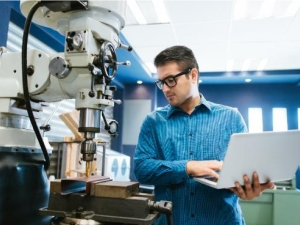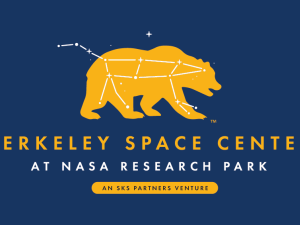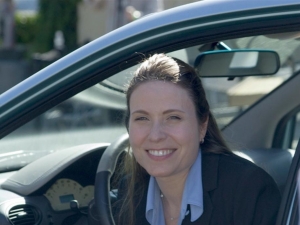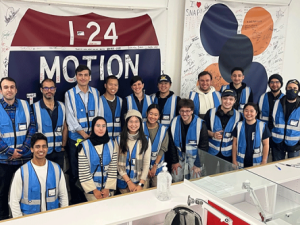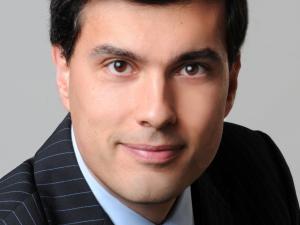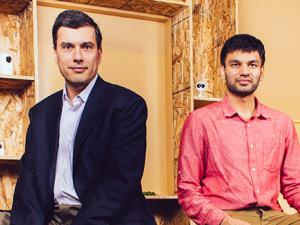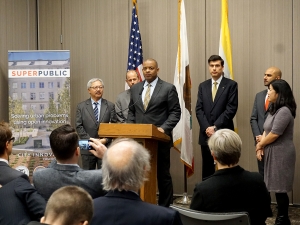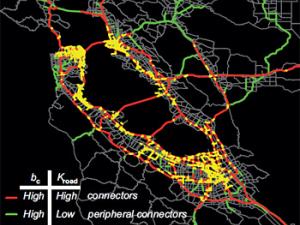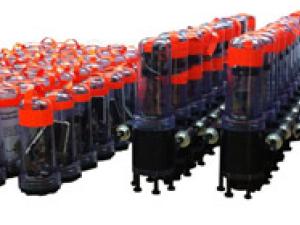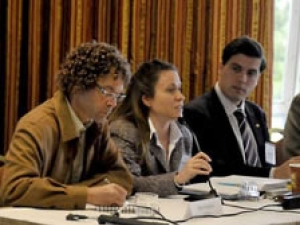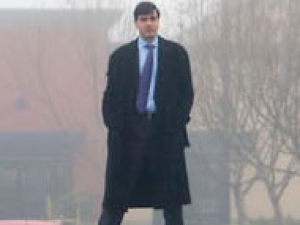

Research Bio
Alexandre Bayen is the Liao-Cho Professor of Electrical Engineering and Computer Science at UC Berkeley. He is a Professor of Electrical Engineering and Computer Science. He currently serves as Associate Provost for the Berkeley Space Center. Prior to this, he was the Director of the Institute of Transportation Studies (ITS). He is also a Faculty Scientist in Mechanical Engineering, at the Lawrence Berkeley National Laboratory (LBNL). He received the Engineering Degree in applied mathematics from the Ecole Polytechnique, France, in 1998, the M.S. and Ph.D. in aeronautics and astronautics from Stanford University in 1998 and 1999 respectively. He was a Visiting Researcher at NASA Ames Research Center from 2000 to 2003. Between January 2004 and December 2004, he worked as the Research Director of the Autonomous Navigation Laboratory at the Laboratoire de Recherches Balistiques et Aerodynamiques, (Ministere de la Defense, Vernon, France), where he holds the rank of Major. He has been on the faculty at UC Berkeley since 2005. Bayen has authored/edited 5 books and over 300 articles in peer reviewed journals and conferences. He is the recipient of the Ballhaus Award from Stanford University, 2004, of the CAREER award from the National Science Foundation, 2009 and he is a NASA Top 10 Innovators on Water Sustainability, 2010. His projects Mobile Century and Mobile Millennium received the 2008 Best of ITS Award for ‘Best Innovative Practice’, at the ITS World Congress and a TRANNY Award from the California Transportation Foundation, 2009. Mobile Millennium has been featured more than 200 times in the media, including TV channels and radio stations (CBS, NBC, ABC, CNET, NPR, KGO, the BBC), and in the popular press (Wall Street Journal, Washington Post, LA Times). Bayen is the recipient of the Presidential Early Career Award for Scientists and Engineers (PECASE) award from the White House, 2010. He is also the recipient of the Okawa Research Grant Award, the Ruberti Prize from the IEEE, and the Huber Prize from the ASCE.
Research Expertise and Interest
control, optimization, machine learning, applications: transportation; mobile sensing; connected health
In the News
CITRIS Announces Partnership With TITAN Group
Berkeley Civil Engineering Members Receive 2024 Institutional Lead Award
CITRIS and Academic Innovation Catalyst Launch Faculty Fellowship to Advance Deep Tech Innovation for Good
Campus Conversations: Excitement Grows for Berkeley Space Center
Berkeley Space Center at NASA Ames To Become Innovation Hub for New Aviation, Space Technology
What Opportunities Do Robo-Taxis in San Francisco Offer? Experts Explain.
Large-Scale Traffic Experiment Uses AI Against ‘Phantom’ Jam
Alexandre Bayen Leads Massive AI Traffic Experiment
Massive Traffic Experiment Pits Machine Learning Against ‘Phantom’ Jams
Turning cars into robot traffic managers
Computer Vision to Protect Patients — and Budgets
Green light for Berkeley: Feds move on $11 million for S.F. transit innovation
Connected Corridors aims to up efficiency of existing roadways
Population and car numbers continue to increase, which means more frustrating hours spent in gridlock, more money lost on wasted energy, and more air pollution.
Cellphone, GPS data suggest new strategy for alleviating traffic tie-ups...
Asking all commuters to cut back on rush-hour driving reduces traffic congestion somewhat, but asking specific groups of drivers to stay off the road may work even better.
Floating Robots use GPS-Enabled Smartphones to Track Water Flow
A fleet of 100 floating robots took a trip down the Sacramento Riveron Wednesday in a field test organized by UC Berkeley engineers. The devices, equipped with GPS-enabled smartphones, demonstrated the next generation of water monitoring technology.
Eco-driving: Ready for prime time?
UC researchers are optimistic that improved driving techniques can cut fuel use by 10 to 20 percent. And the time may be right to sell the public on these methods, they say.
White House awards Alexandre Bayen with early career award
A UC Berkeley researcher who specializes in mobile Internet applications — used, to date, in traffic planning and environmental monitoring — nominated by the National Science Foundation.



